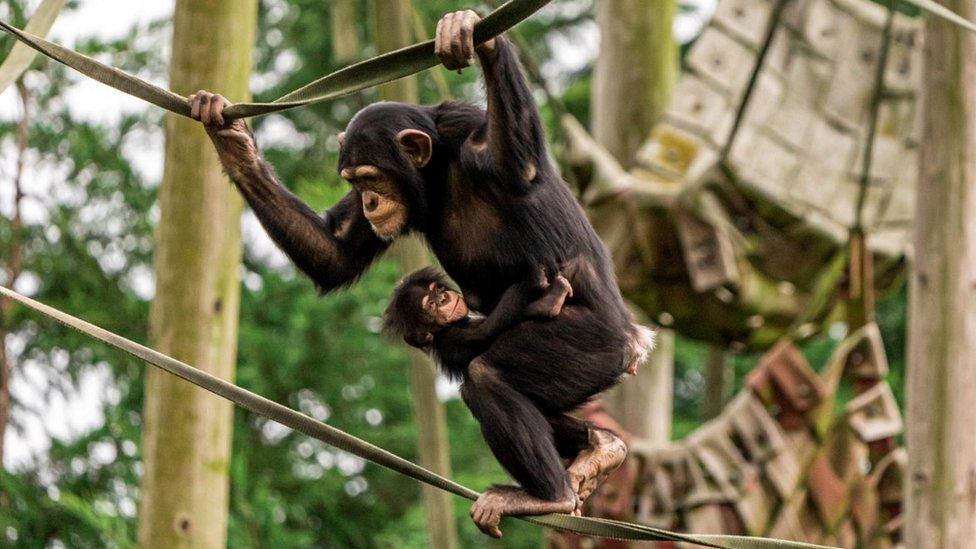Chester Zoo hopes new black jaguar will help viable population aim
- Published
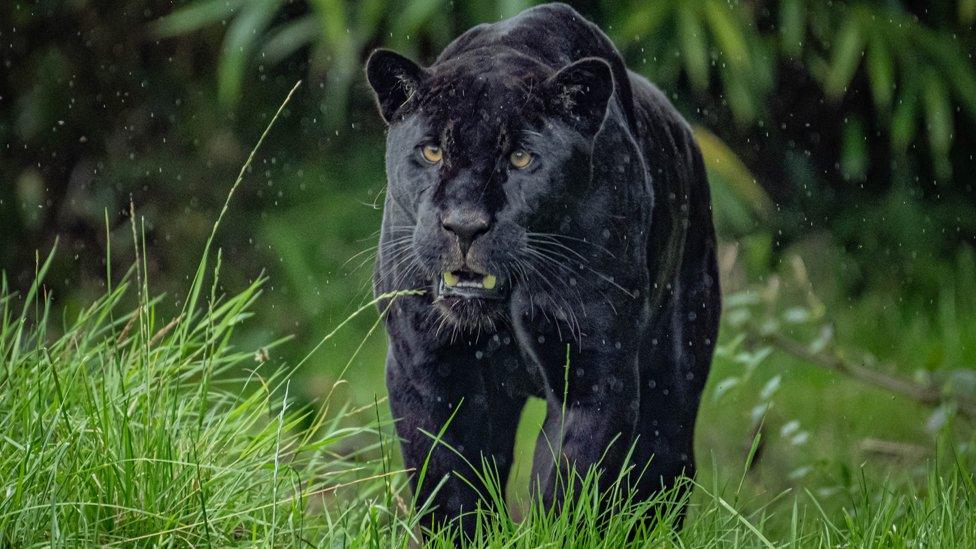
Carnivores team manager Dave Hall said Inka was "a wonderful ambassador for her species"
A zoo has welcomed the arrival of a "rare" black jaguar which it hopes will help in its attempts to "ensure a genetically viable population" of the big cats in Europe.
Two-year-old female Inka has moved to Chester Zoo from Kent's Big Cat Sanctuary to join resident male Napo.
Carnivores team manager Dave Hall said the "early signs" that the pair would form a bond were "positive".
He added that Inka was "a wonderful ambassador for her species".
The zoo said while Napo and Inka had very different coat colours, there was "no such species as a black panther" and Inka's dark colouring was a result of a genetic mutation known as melanism.
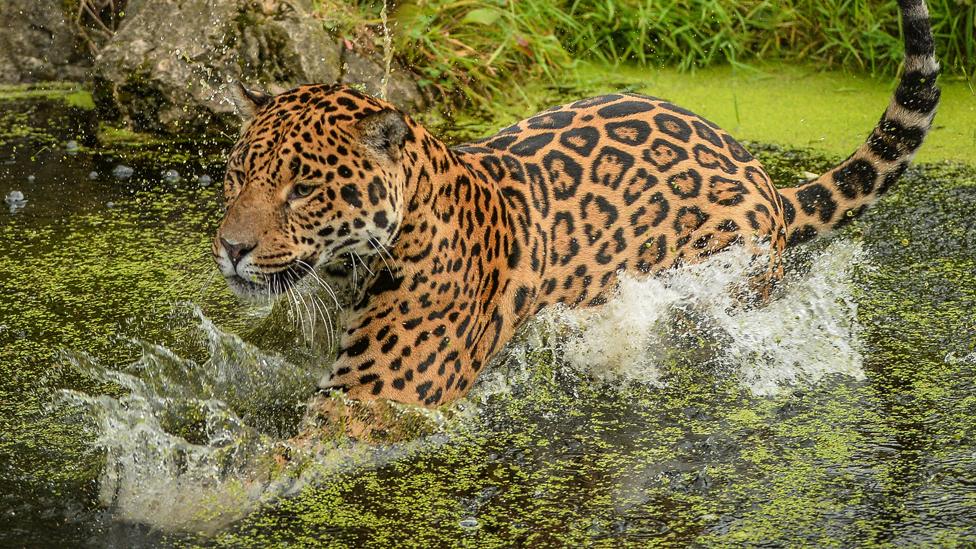
The zoo hopes Inka will bond with resident male Napo
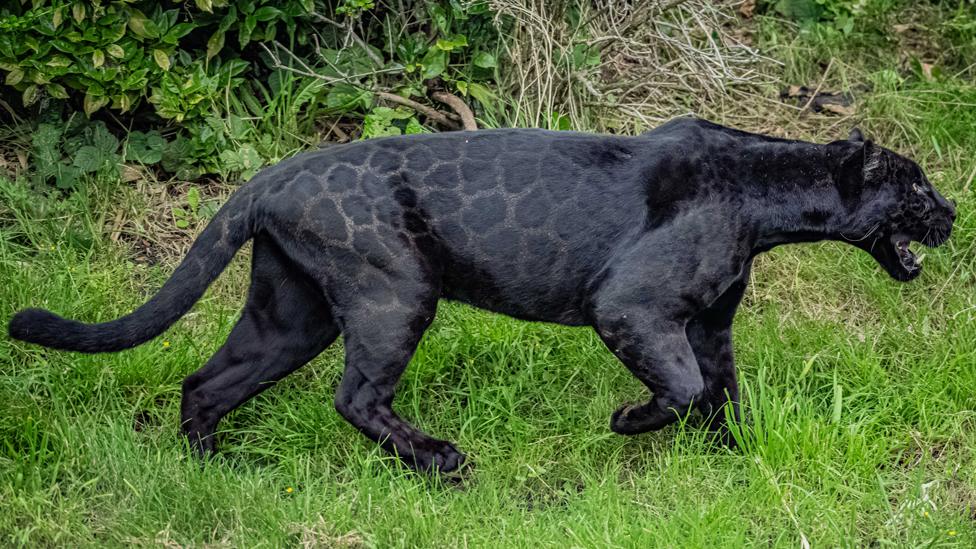
The black jaguar's colouring is a result of a genetic mutation, but similar markings to Napo's can be seen in Inka's coat
A representative said jaguars, which were native to the Americas, were listed as "near threatened" by the International Union for the Conservation of Nature "with scientists believing they may become vulnerable to extinction in the near future".
Mr Hall said the new arrival was "a strikingly beautiful, bold and confident young jaguar".
"She's quickly taken to her new surroundings," he added.
"The union between her and Napo has been carefully orchestrated by carnivore experts... and a programme that's working in partnership to ensure a genetically viable population of jaguars across Europe.
"We hope the two of them will go to form a strong and meaningful bond, and the early signs are positive."
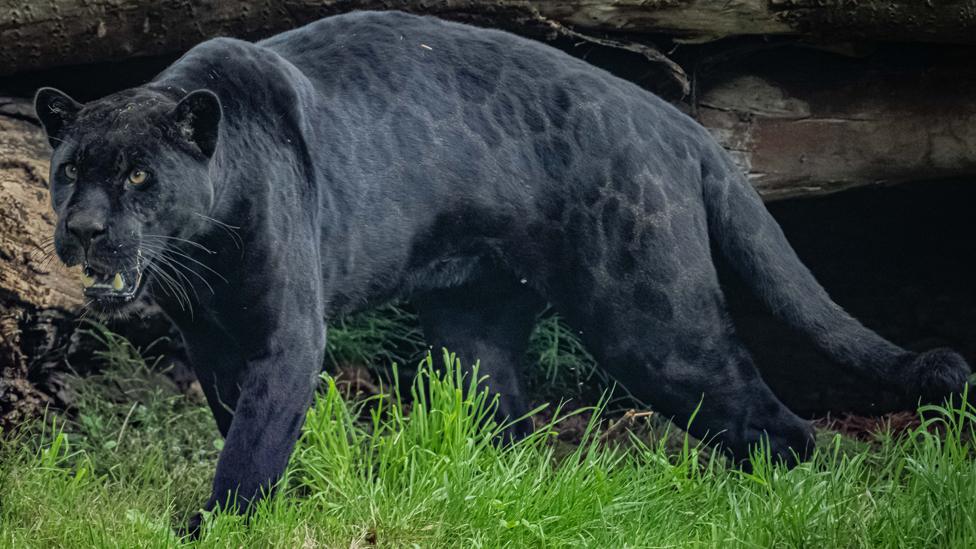
Inka has been moved from Kent to join Napo at the zoo
Paul Bamford, the zoo's regional field programmes manager for the Americas, said it was "working to influence policy, both in the UK and internationally", to address deforestation and "habitat fragmentation", which was being "driven by industrial agriculture, primarily for soy, oil palm and cattle production".
"Many of these products are exported to countries such as the UK, and therefore, our shopping habits can have a significant impact on global biodiversity loss," he said.
"The goal is to create a deforestation-free economy, in which countries are able to meet their development needs sustainably.
"If we can break the link between habitat loss and production, then we have the opportunity secure a future for people and wildlife."

Why not follow BBC North West on Facebook, external, Twitter, external and Instagram, external? You can also send story ideas to northwest.newsonline@bbc.co.uk, external
Related topics
- Published6 July 2023
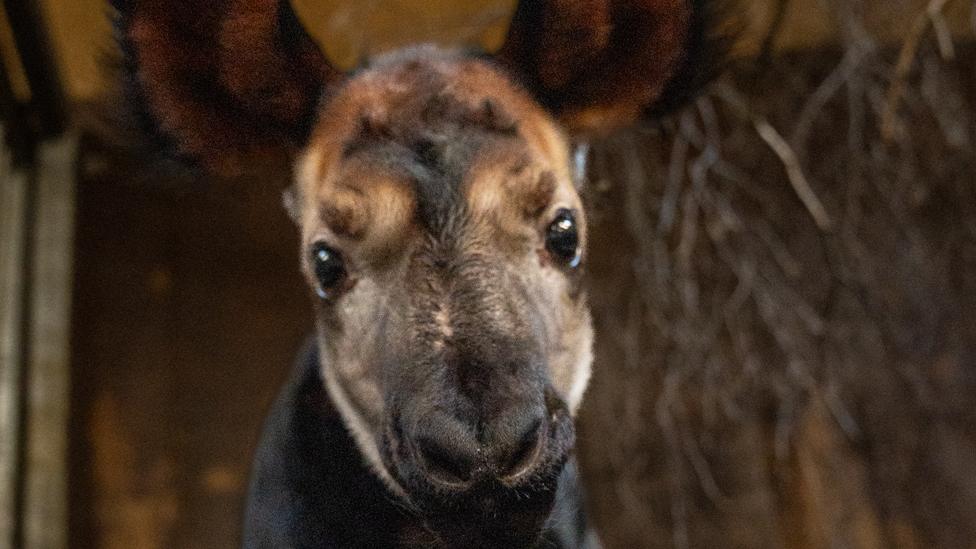
- Published23 June 2023
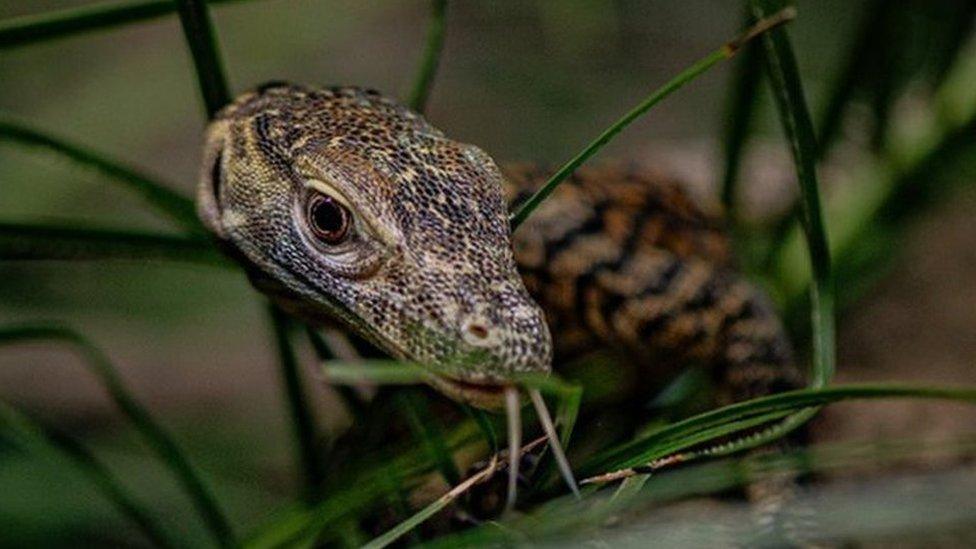
- Published21 June 2023
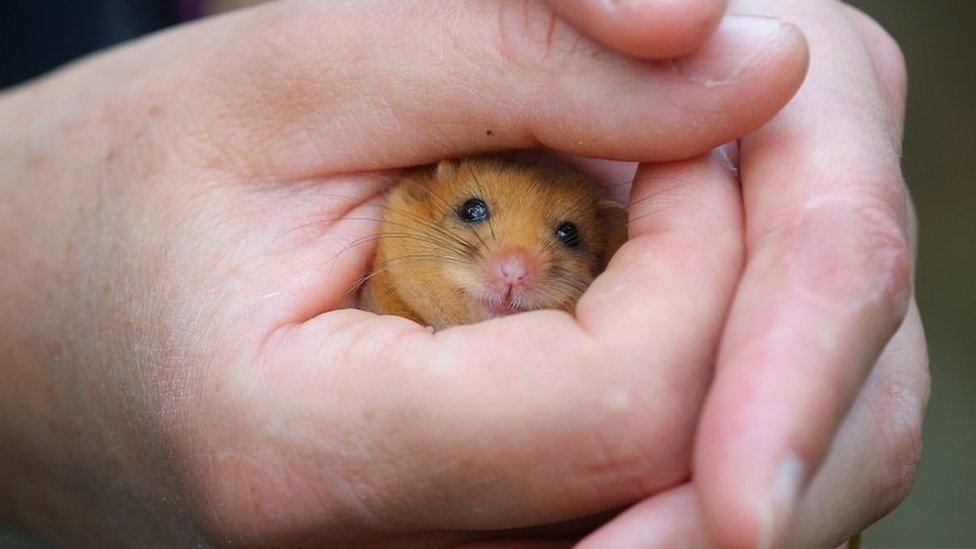
- Published4 April 2023
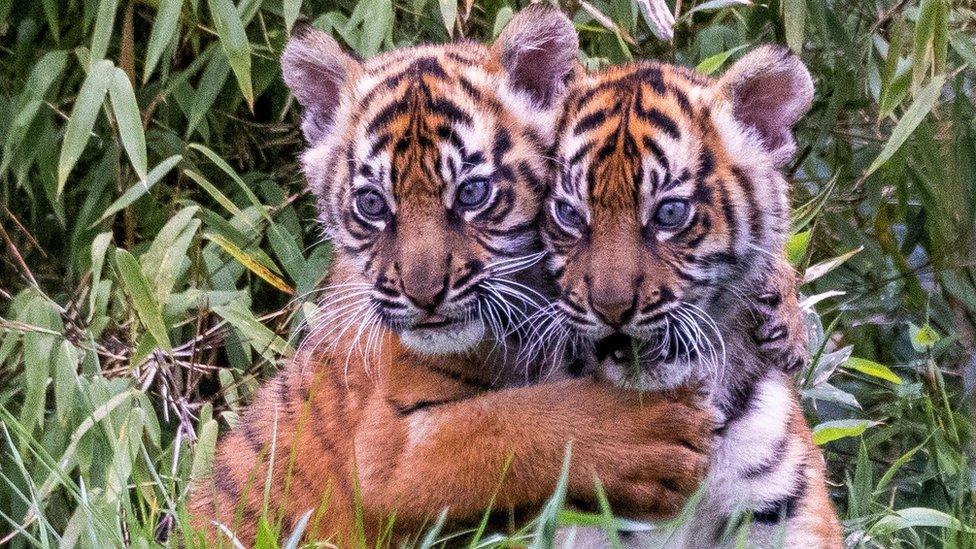
- Published23 February 2023
